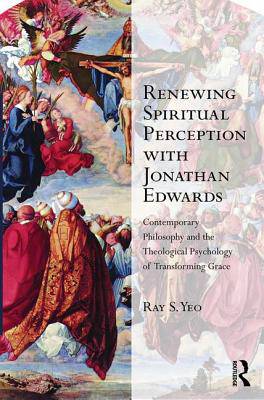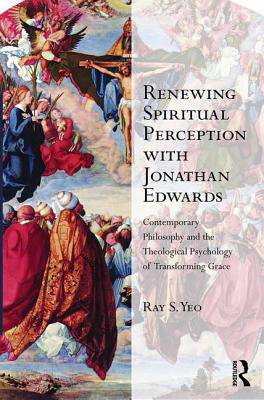
- Retrait gratuit dans votre magasin Club
- 7.000.000 titres dans notre catalogue
- Payer en toute sécurité
- Toujours un magasin près de chez vous
- Retrait gratuit dans votre magasin Club
- 7.000.000 titres dans notre catalogue
- Payer en toute sécurité
- Toujours un magasin près de chez vous
Renewing Spiritual Perception with Jonathan Edwards
Contemporary Philosophy and the Theological Psychology of Transforming Grace
Ray S YeoDescription
Jonathan Edwards' theologically sophisticated psychology of grace remains one of the deepest and most fertile theological psychologies in the Protestant tradition. The heart of his account lies in his foundational doctrine of spiritual perception where he locates the psychological core of the engraced Christian life. This work revisits Edwards' doctrine from the perspective of recent work in the philosophy of emotions and other related philosophical sub-disciplines. The aim is to recover this often neglected theme in contemporary theology and renew it by bringing Edwards' theological insights into conversation with various spheres of contemporary philosophical discussion. The account of spiritual perception that emerges from this interdisciplinary dialogue is one that seeks to revise, update and deepen Edwards' own thinking on the matter in five major ways. The book concludes by arguing that the capacity for spiritual and emotional perception of the supreme good is grounded upon a wisdom-like seminal virtue centred upon the incarnate Christ (i.e., Christocentric wisdom). Such wisdom, on the renewed account, is considered the psychological core of transforming grace and the foundational basis upon which all other Christian virtues are formed.
Spécifications
Parties prenantes
- Auteur(s) :
- Editeur:
Contenu
- Nombre de pages :
- 242
- Langue:
- Anglais
- Collection :
Caractéristiques
- EAN:
- 9781472466532
- Date de parution :
- 07-07-16
- Format:
- Livre relié
- Format numérique:
- Genaaid
- Dimensions :
- 155 mm x 234 mm
- Poids :
- 566 g







